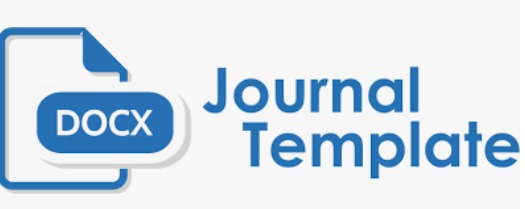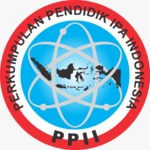Feasibility of Academic Blogs as Learning Media for Electromagnetik Induction Material
DOI:
https://doi.org/10.29408/kpj.v7i3.23918Keywords:
term2Abstract
Based on pre-observation results, researchers found that student learning outcomes in electromagnetic induction material were still below the standards set by the school. This is due to the lack of learning media used. Therefore, it is necessary to develop innovative media that can support learning, namely blog-based learning media. This research aims to determine feasibility according to media experts, feasibility according to material experts, and test students' responses to the media being developed. This research uses Thiagarajan's R&D steps with a 4D model, namely (Define, Design, Develop, and Disseminate), but in its implementation in this research it is modified to 3D, namely Define, Design, and Develop. The results of data analysis show that from the media aspect it is categorized as very appropriate with a score of 91%, from the material aspect it is categorized as appropriate with a score of 75% and the results of student responses to the media being developed are categorized as very feasible with a score of 95%. Based on this, it can be concluded that the learning media with the Academic Blog is said to be suitable for use in learning electromagnetic induction material.References
Arsyad, A. (2019). Pengembangan bahan ajar teknologi pembelajaran berbasis web-blog pada mahasiswa Fakultas Trabiyah dan Keguruan Universitas Islam Negeri Alauddin Makassar. Inspiratif Pendidikan, 8(2), 271–280.
Fithriyah, M., & Viyanti, P. (2023). The effectiveness of scrapbook media on students’ learning outcomes in thematic learning for 3rd grade at SDN Deket Kulon Lamongan. Jurnal Pendidikan Dasar Nusantara, 9(1), 1–9. https://doi.org/10.29407/jpdn.v9i1.19099
Handayani, T., Rahmandani, F., & Muzzaki, A. (2023). Inovasi pembelajaran berbasis digital melalui Liveworksheet untuk membudayakan keterampilan digital peserta didik. JINoP (Jurnal Inovasi Pembelajaran), 9(1), 31–43. https://doi.org/10.22219/jinop.v9i1.26276
Kahraman, S. (2021). The Effects of Blog-Based Learning on Pre-service Science Teachers’ Internet Self-efficacy and Understanding of Atmosphere-Related Environmental Issues. Canadian Journal of Science, Mathematics and Technology Education, 21(1). https://doi.org/10.1007/s42330-021-00137-7
Khairiyah, E., & Fernandes, R. (2021). Pengembangan blog modul sosiologi untuk meningkatkan minat belajar siswa Kelas X IPS di SMA N 2 Bilah Hulu. Jurnal Sikola: Jurnal Kajian Pendidikan Dan Pembelajaran, 2(4), 267–276. https://doi.org/10.24036/sikola.v2i4.127
Latifah, E., & Kuswanto, H. (2018). Pengembangan Blog sebagai Media Pembelajaran Berbasis Proyek. Jurnal Pendidikan Matematika Dan Sains, 1, 93–104. http://journal.uny.ac.id/index.php/jpms
Lovandri Dwanda Putra, Anis Thasia, Nisa Istinawaro, Nida Ulayya. (2023). Pengaruh Pemanfaatan Media Digital Dalam Mengatasi Kejenuhan Belajar Siswa. Kappa Journal, 7(2), 319-325. https://doi.org/10.29408/kpj.v7i2.20961
Ningsih, N. S., Dacholfany, M. I., Aminin, S., Magister, M., Pendidikan, A., Metro, U. M., & Magister, D. (2020). Implementasi supervisi akademik dalam meningkatkan kualitas pembelajaran di SMA dan SMK se-Kecamatan Abung Semuli Lampung Indonesia. El-Ghiroh: Jurnal Studi Keislaman, 18(2), 179–193.
Pancawardhani, H., Sumarni, W., & Tri Prasetyo, A. (2022). Utilization of learning media based on blogs, videos, and vlogs that have a positive impact on learning. Unnes Science Education Journal Accredited Sinta, 11(3), 137–144. https://doi.org/10.15294/usej.v11i3.60688
Rahman, K. A. A., Rozali, M. Z., Samah, N. A., Bakar, M. A., Ahmad, N. A., Gerijih, D. D., & Zakariah, S. H. (2022). Conceptual Model of Video Learning based on Project-Oriented Problem-Based Learning and Competency-Based Education for Technical and Vocational Education. Journal of Technical Education and Training, 14(1). https://doi.org/10.30880/jtet.2022.14.01.004
Rizky Noor Adawiyah, Hadma Yuliani, Muhammad Nasir. (2023). Meta Analisis: Pengembangan Media Pembelajaran Interaktif Flipbook Terhadap Hasil Belajar Fisika. Kappa Journal, 7(2), 241-250. https://doi.org/10.29408/kpj.v7i2.19276
Rohman, P. N., Na’im, M., & Sumardi, S. (2021). Pengembangan media berbasis prezi pada mata pelajaran sejarah kelas X SMA dengan model 4d. JINoP (Jurnal Inovasi Pembelajaran), 7(1), 1–9. https://doi.org/10.22219/jinop.v7i1.13054
Rumahorbo, S., & Nurfajriani, N. (2022). Pengembangan media e-learning berbasis weblog dengan pendekatan Contextual Teaching and Learning (CTL) pada materi laju reaksi. Jurnal Indonesia Sosial Sains, 3(4), 615–624. https://doi.org/10.36418/jiss.v3i4.566
Sari, M. (2020). Pengembangan VLOG (Video Blog) cahannel youtube berbasis STEM pada materi laju reaksi kelas XI SMA/MA. Journal of Research and Education Chemistry, 2(2), 73–84. https://doi.org/10.25299/jrec.2020.vol2(2).5725
Septiana, R., Mulyono, D., & PGRI Lubuklinggau, S. (2021). Pengembangan E-Learning berbasis Web-Blog pada Mata Pelajaran Matematika SD Negeri 26 Lubuklinggau. 1(2).
Setiawan, A. M. (2023). The trend of developing science learning media in Indonesia. AIP Conference Proceedings, 2572. https://doi.org/10.1063/5.0118338
Subangkit, S. A., & Kustijono, R. (2013). Pengembangan blog sebagai media pembelajaran fisika pada materi gerak. Jurnal Inovasi Pendidikan Fisika, 02(03), 221–224.
Suryadi, S., Mahardika, I. K., Sudarti, S., & Supeno, S. (2022). Effect of object-oriented physics learning on students’ abilities to interpret and make reasoning about data. Jurnal Penelitian Pendidikan IPA, 8(3), 1519–1523. https://doi.org/10.29303/jppipa.v8i3.1746
Susiyanti, U. (2018). Pengembangan blog sebagai bahan ajar pengolahan dan penyanjian makanan konyinental untuk meningkatkan hasil belajar siswa SMK Program Studi Tata Boga. Joined Journal (Journal of Informatics Education), 1(1), 17–23.
Vitolo, K., & Isaac, L. (2022). The impact of hybrid learning on college students’ attention. Journal of Student Research, 11(4), 1–9. www.JSR.org









